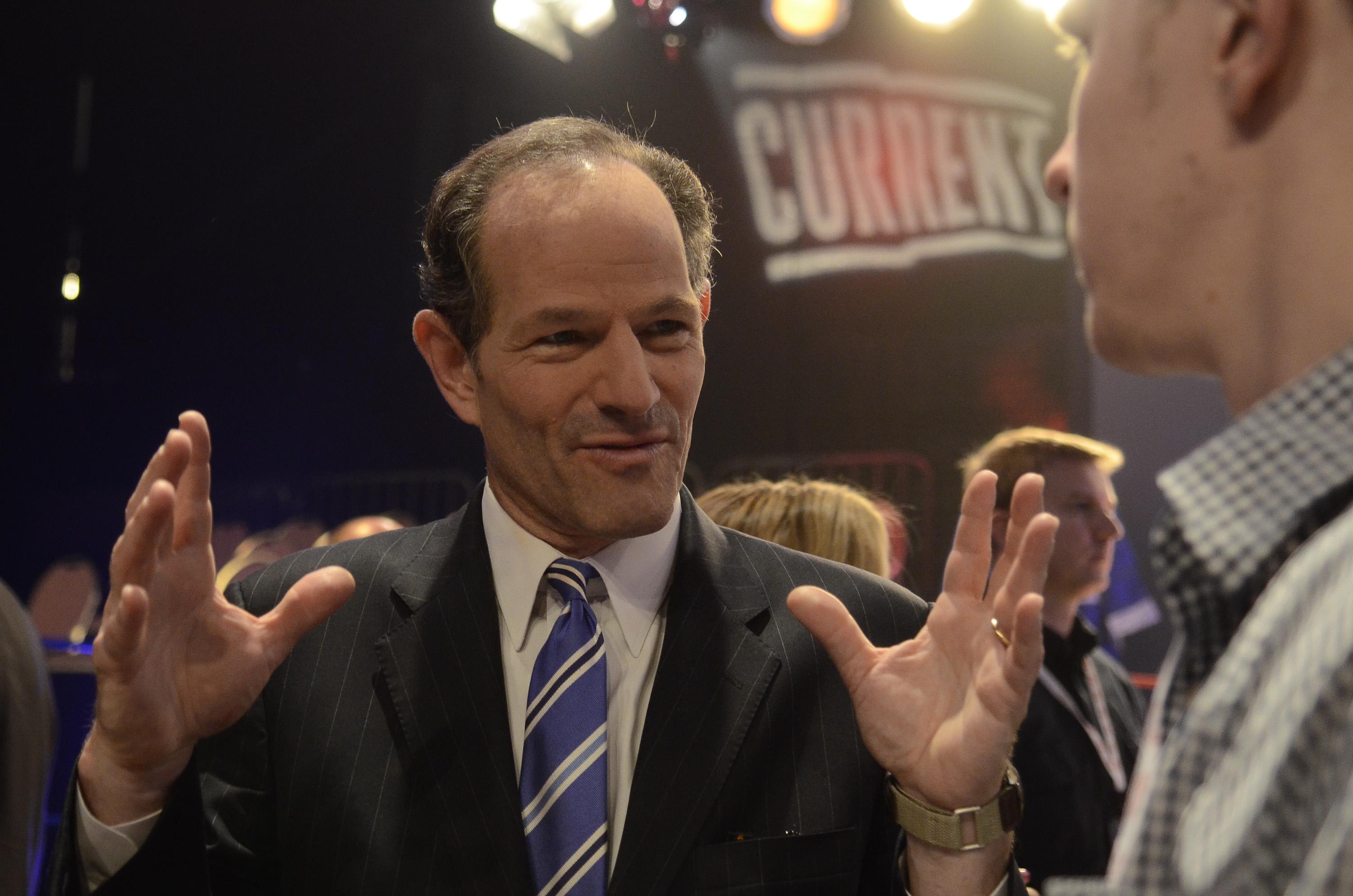Eliot Spitzer’s resignation as governor of New York state has worked out all right for the world. He went on to write a bunch of good columns for Slate and—after the awkward David Patterson interregnum in New York—the state wound up with another effective governor in Andrew Cuomo. But now that he’s trying to mount a political comeback by running for the relatively lowly office of New York city comptroller, it’s worth stating the obvious: He never should have resigned in the first place, and the other people in New York State Democratic Party politics who pushed him to resign did the state and the country a disservice.
The most obviously relevant precedent here is Sen. David Vitter of Louisiana who, like Spitzer, was caught out patronizing prostitutes. But he didn’t quit, so as the incumbent he held on to the GOP nomination, plus he’s a Republican in Louisiana, so the voters re-elected him on the sensible grounds that David Vitter’s brand of oil-fueled conservative politics is what the voters of Louisiana want. But Vitter is hardly the only precedent here. We see that Mark Sanford made a political comeback in South Carolina, and we saw Bill Clinton famously survive a sex scandal in a way that showed that if your political opponents really go all-in on scandalmongering, they end up embarrassing themselves. Beyond sex, the current president of the United States is an admitted former cocaine user. His predecessor essentially admitted to cocaine use and was a confessed recovering alcoholic. Both Spitzer and Anthony Weiner seem to me to have fallen prey less to political realities than to the hothouse media environment of New York, a place where a lot of reporters happen to live and where we continue to have a competitive tabloid newspaper market and thus all local occurrences end up being over-covered. But in general determined politicians are able to duck and cover and refocus media attention on politics and ideology where a Democrat running statewide in New York is as golden as a Republican running statewide in Louisiana.
Now that he’s mounting a comeback, I suspect Spitzer’s real problem will be not prostitution scandals but the fact that his opponent in the primary, Scott Stringer, is himself a very able politician. He’s one of the few New York City officials to have focused in on the city’s obscene infrastructure construction costs as a key problem holding back improved mass transit service. In fact, in Spitzer vs. Stringer you now have two quite solid candidates for a position that, unfortunately, is somewhat underpowered.
But on a larger stage, Spitzer represented something quite important—a New York Democrat who was known for cracking down on Wall Street. Wall Street presents a dilemma for New York liberals, since it’s a cash cow that directly and indirectly provides the city with tons of tax revenue as well as secondary employment (fancy restaurants) and philanthropic patronage of the city’s cultural offerings. Politicians tend to back hometown industries, so it’s not exactly shocking to see Chuck Schumer and Kristen Gillibrand lobbying the Treasury Department to dilute some bank-unfriendly CFTC directives. But Spitzer made himself famous by antagonizing elements of the financial services industry, and offered an appealing counterpoint to the bank-friendly outlook that unites the state’s other prominent politicians.
At any rate, I grew up in New York but haven’t lived there for a while so I can’t really know the merits of Spitzer vs. Stringer for comptroller other than having positive things to say about both of them. But in terms of the national policy agenda, one of Spitzer’s more intriguing columns was this one about mobilizing the clout of pension funds and small stock holdings to reform Wall Street. That’s relevant because New York City’s comptroller is, among other things, managing trustee of its public employee pension funds. Spitzer is obviously a guy with bigger ambitions that city finances (he was governor of the whole state after all) and he’s shown a talent for exploiting the powers of office, so if he gets the job I suspect he’d do something interesting with it.
